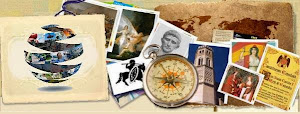What is Jean-Yves Leloup | Psychology Concepts.
Writer, PhD in Transpersonal Psychology, philosopher, priest hesícasta –
one who dedicates his life to diving in the universe and on prayer-,
poet and noted interpreter of the words of Christ, among many other
titles, Jean-Yves Leloup was born in the town of Angé, in France, in January 24, 1950. His parents were Pierete Leloup Bienvenue and Jean Claude Leloup. A
member of the Orthodox Church, he is an ardent defender of the Union
between science and spirituality, more developed theme in his work.
Expert conferences, one of the most requested on the European continent, discloses for every nook and cranny of the Planet clearly holistic ideas. He is also President of the Paris International Holistic University, as well as Advisor of the International College of therapists. Leloup is considered one of the most renowned philosophers of our time. He frequently visits Brazil, usually during events produced by the University of peace – Unipaz.
In his work and in his lectures he deals with so deep the sacred texts, and encourages its audience to a broad meditation on spiritual realities in the everyday life of modern life. Encourages transdisciplinary training, also an integration between the various dimensions of knowledge. He published more than fifty books; translated and commented the Gospels of Thomas, Mary of Magdala, Philip and John.
Among other volumes, wrote of being "Care; "Paths of achievement"; "The spirit in health"; "Desert Therapists"; The Gospel of Thomas "; "Paths of healing"; "The body and its symbols"; "The Gospel of Mary"; "Deserts, deserts"; "The art of Dying"; The Words "source", "the Gospel of John"; "Shortage and Plenitude"; "Signs of hope"; "Beyond the light and shadow"; "Old and new Therapists"; "The mountain in the ocean" and "an art of Love for our times."
About the Orthodox Church, Leloup claims that orthodoxy is the face of early Christianity, it was actually a Union of various churches – Jerusalem, Antioch, Ephesus, Rome. There was a break in the 12th century, on the initiative of the Roman headquarters. The other preserved the conjunction. Justifying the recurrence of the discussions about the desert in his work, he claims he is the symbol of silence, source of the word, and also to where it returns. He also represents the void, source of all that exists, the same space that waits for the return of the creation.
Jean-Yves Leloup also created a neologism that defines so masterly the behavior of most people living in the contemporary universe – the normose. This expression refers to the practices normally accepted by social consensus, by conventional rules, but which in fact are configured in habits that often cause irreversible damage. For example, the rampant consumerism that today puts at risk our planet-' normal ' are those who adhere to this harmful custom, and ' crazy ' those who fight this behavior. Second Leloup, the former are the normóticos-pathological-normal, even if they have not acknowledged it.
These and other themes such as reincarnation, God, the concept of the sacred, the memories of the body size, the interaction between the individual and society, the insight into the death, the human journey, religious intolerance, are widely discussed by this 21ST century philosopher.

Expert conferences, one of the most requested on the European continent, discloses for every nook and cranny of the Planet clearly holistic ideas. He is also President of the Paris International Holistic University, as well as Advisor of the International College of therapists. Leloup is considered one of the most renowned philosophers of our time. He frequently visits Brazil, usually during events produced by the University of peace – Unipaz.
In his work and in his lectures he deals with so deep the sacred texts, and encourages its audience to a broad meditation on spiritual realities in the everyday life of modern life. Encourages transdisciplinary training, also an integration between the various dimensions of knowledge. He published more than fifty books; translated and commented the Gospels of Thomas, Mary of Magdala, Philip and John.
Among other volumes, wrote of being "Care; "Paths of achievement"; "The spirit in health"; "Desert Therapists"; The Gospel of Thomas "; "Paths of healing"; "The body and its symbols"; "The Gospel of Mary"; "Deserts, deserts"; "The art of Dying"; The Words "source", "the Gospel of John"; "Shortage and Plenitude"; "Signs of hope"; "Beyond the light and shadow"; "Old and new Therapists"; "The mountain in the ocean" and "an art of Love for our times."
About the Orthodox Church, Leloup claims that orthodoxy is the face of early Christianity, it was actually a Union of various churches – Jerusalem, Antioch, Ephesus, Rome. There was a break in the 12th century, on the initiative of the Roman headquarters. The other preserved the conjunction. Justifying the recurrence of the discussions about the desert in his work, he claims he is the symbol of silence, source of the word, and also to where it returns. He also represents the void, source of all that exists, the same space that waits for the return of the creation.
Jean-Yves Leloup also created a neologism that defines so masterly the behavior of most people living in the contemporary universe – the normose. This expression refers to the practices normally accepted by social consensus, by conventional rules, but which in fact are configured in habits that often cause irreversible damage. For example, the rampant consumerism that today puts at risk our planet-' normal ' are those who adhere to this harmful custom, and ' crazy ' those who fight this behavior. Second Leloup, the former are the normóticos-pathological-normal, even if they have not acknowledged it.
These and other themes such as reincarnation, God, the concept of the sacred, the memories of the body size, the interaction between the individual and society, the insight into the death, the human journey, religious intolerance, are widely discussed by this 21ST century philosopher.
Published for educational purposes
